Why More Wisconsinites Are Sensing That Democracy Is In Decline
Aside from voting, Wisconsin residents have a limited number of remedies when they disagree with their elected leaders.
August 6, 2018
Wisconsin Assembly chambers entrance grille

Seven years ago, at age 73, Sheila Plotkin stepped onto the glossy tiles of the Wisconsin State Capitol with a protest sign in hand and her husband by her side. She saw a sea of law enforcement.
Due to increased security, police officers escorted the couple and other members of the public to the Senate. There, Majority Leader Scott Fitzgerald was signing a contempt order for 14 Democratic senators who fled the state to avoid voting for the controversial budget repair bill — later called Act 10 — that all but ended collective bargaining rights for public sector employees in Wisconsin.
As Plotkin, a retired teacher, and her husband left, the elevator unexpectedly stopped at the second floor. Plotkin said an officer stepped forward and took their photo.
Plotkin then told protesters gathered outside the Capitol that she felt like she was in a “czar’s castle” being escorted by “the palace guard.”
“I was so angry. I was so distraught,” Plotkin recalled. “I said, ‘This is not my Wisconsin,’ and then I broke down and started to cry.”
Since that moment in March 2011 — after weeks of protests that drew national attention with crowds estimated at up to 100,000 people — Plotkin found it distressing to see Wisconsin’s democracy being “nibbled away.”
“Most people believe government no longer represents the people,” Plotkin said. “It represents campaign donors, special interests, the wealthy.”
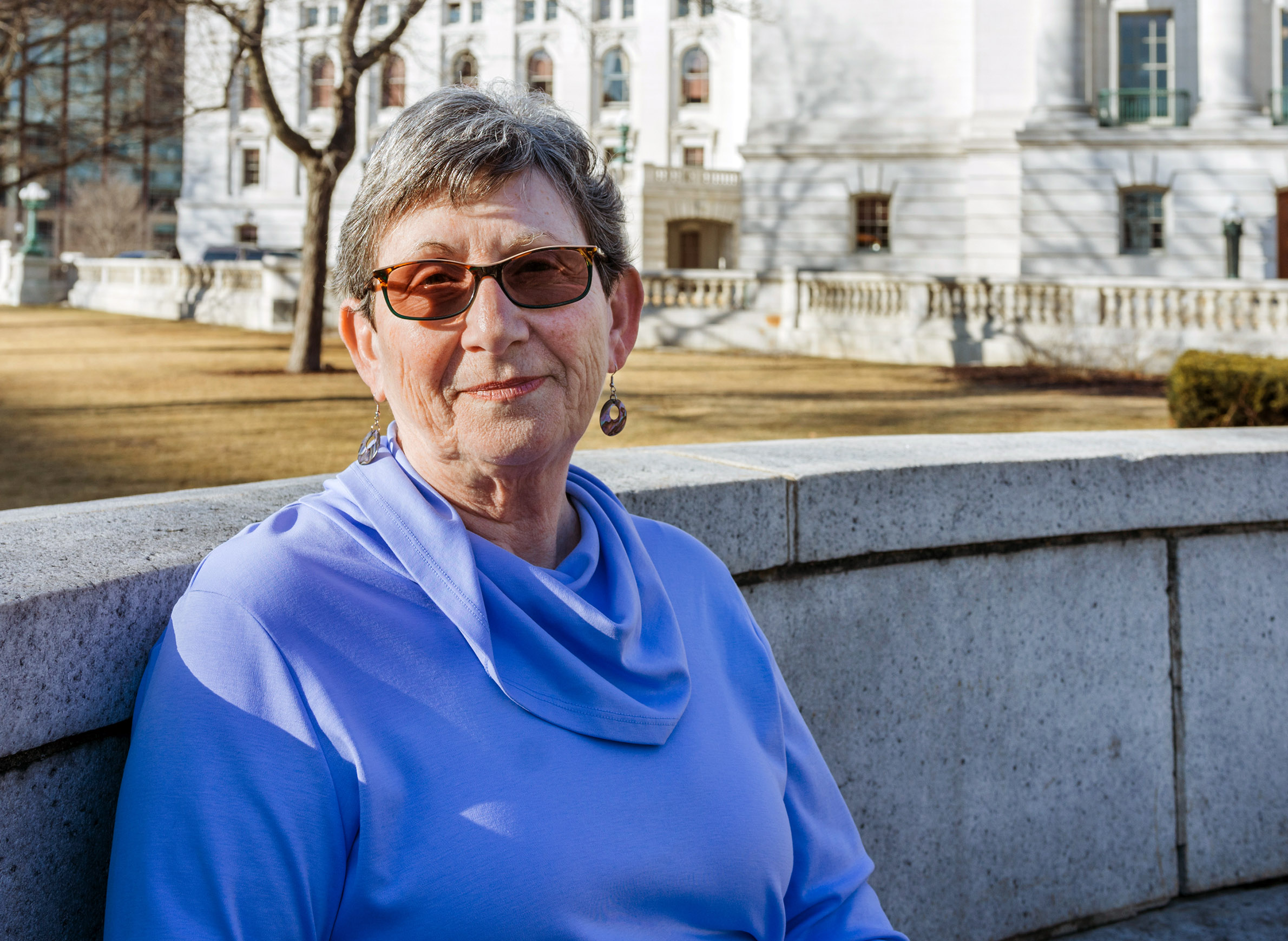
Plotkin is among the growing segment of Americans questioning the strength of democracy. A 2018 poll commissioned by the bipartisan Democracy Project found that over two-thirds of Democrats, Republicans and independents feel very or somewhat concerned about the current state of American democracy.
The Edelman Trust Barometer has been gauging public faith in institutions in the United States and elsewhere for 18 years. It reported that 2018 saw the “steepest, most dramatic general population decline the Trust Barometer has ever measured,” with just 33 percent of the public expressing trust in the government — down 14 points from 2017.
“The public’s confidence in the traditional structures of American leadership is now fully undermined and has been replaced with a strong sense of fear, uncertainty and disillusionment,” according to Edelman, a global communications marketing firm.
Aside from voting, Wisconsin residents have a limited number of remedies when they disagree with their elected leaders. In some other states, voters can initiate laws and even overturn decisions made by elected officials. Wisconsin voters do not have those options, but they have one potentially potent weapon: Recall.
That is how Orville Seymer got his start in political activism in 2002. Seymer was part of Citizens for Responsible Government, which formed after news reports revealed that hundreds of Milwaukee County employees, including then-County Executive Tom Ament, stood to collectively earn up to $900 million in additional pension payments.
The citizens group launched a series of recall elections against Ament and county board members who had voted for the so-called backdrop payments. When Seymer and his compatriots hit the streets to gather 73,000 signatures in 60 days to recall Ament, the response was overwhelming: 182,957 signatures in just 28 days.
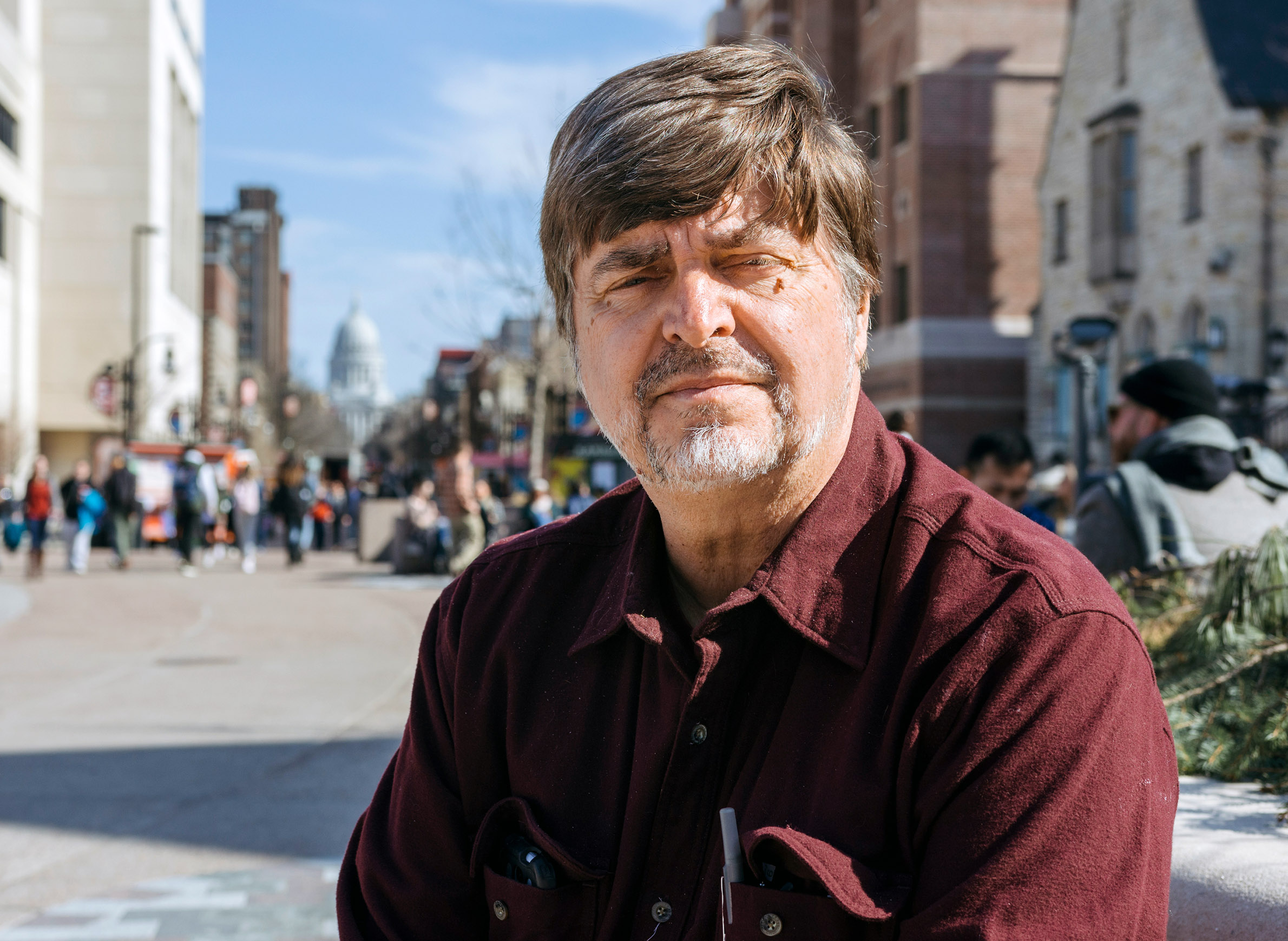
“Something like this had never hit Wisconsin before. It was wild pandemonium,” Seymer said of the scandal that eventually forced Ament and seven board members out of office and launched now-Gov. Scott Walker into the county executive’s seat.
Ament retired soon after the Milwaukee Journal Sentinel broke news of the scandal, forfeiting a potentially multimillion-dollar payment.
Citizen power on the rise?
Unlike Sheila Plotkin, some political observers in Wisconsin say the power of the individual is actually getting stronger. Brett Healy, president of the conservative-leaning think tank the MacIver Institute, said there are numerous organized and well-funded groups for Democrats, Republicans and special interests that people can join to exert influence.
“If you care about democracy, your country, your state, you’re going to join with others and make your opinions heard,” Healy said.
In Wisconsin, the percentage of residents saying they strongly or somewhat agree that the government is run by “a few big interests looking out for themselves” has gone from 79 percent in 2013 to 84 percent in 2015, according to surveys by the Marquette University Law School Poll. Results showed that Democrats and independents were consistently more pessimistic than Republicans on this point.
A 2017 Marquette surveyalso found that just 47 percent of Wisconsin residents polled said they trusted state government “to do what is right” either “just about always” or “most of the time.”
Partisanship crowds out citizens
Former state Sen. Tim Cullen believes several factors have led to the weakening of citizen power. He cited hyper-partisanship, the need to raise significant campaign donations and officials’ desires to be reelected.
A Democrat from Janesville, Cullen served in the Senate in the 1970s and ’80s and again from 2011 to 2015. After he returned to public life, Cullen said he noticed that legislators seem to act primarily in allegiance to their parties in order to keep their jobs.
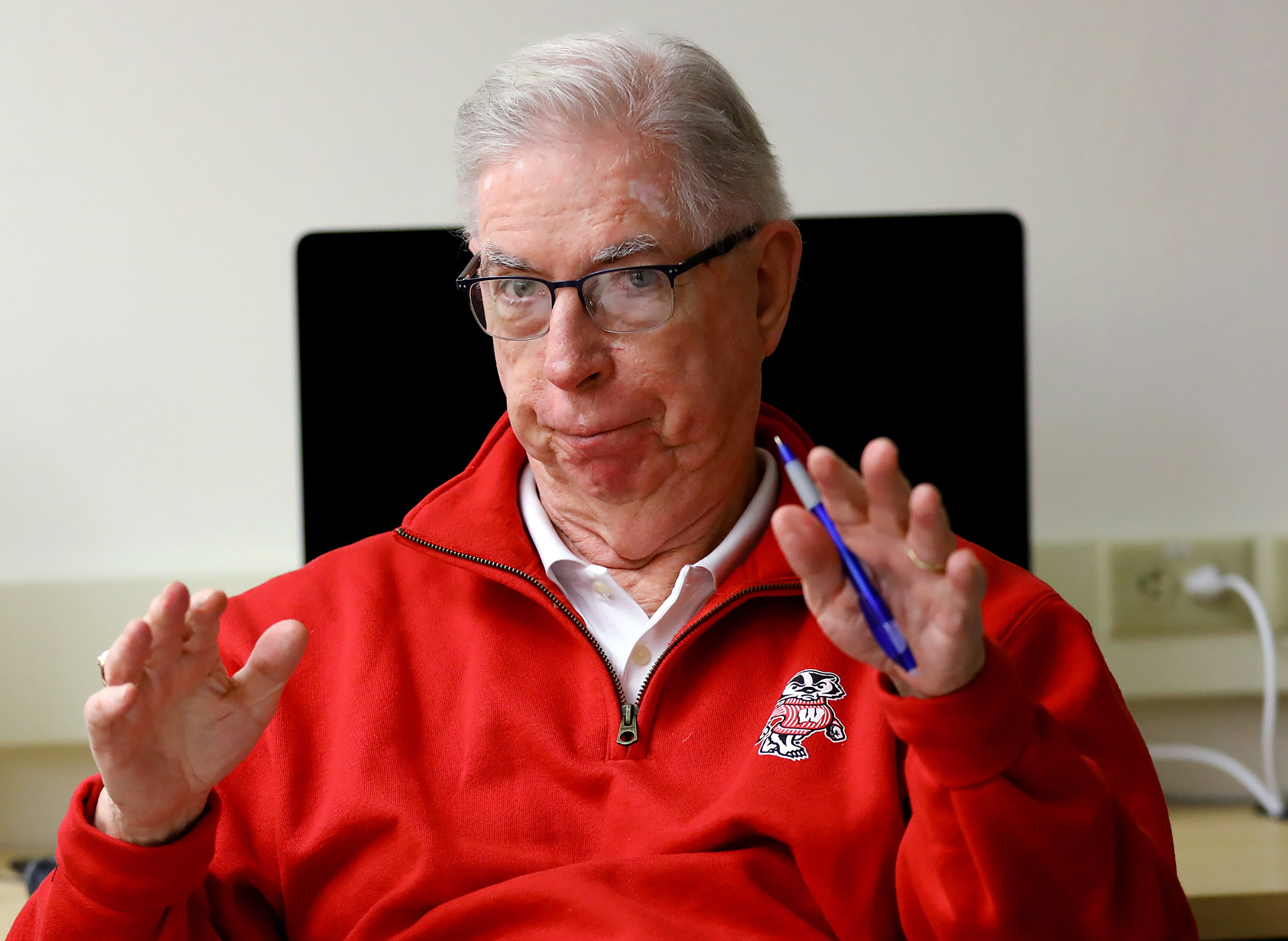
“The citizens say, ‘Why can’t they [Republicans and Democrats] work together? Why can’t they just find some common ground?'” said Cullen, who served as majority leader during his first stint in the Legislature. “Well, the political system is rigged in a way that in their own self interest of getting re-elected — which is an overwhelmingly important thing to most of them — it doesn’t help them get re-elected to be working with the other party.”
Jacob Stampen, a UW-Madison emeritus professor of educational leadership and policy analysis, said his research reveals a growing partisanship that has made state lawmakers more indebted to party bosses than to the public. Stampen has been tracking voting in the Wisconsin Legislature since 2003. His first analysis of voting was as a graduate student at UW-Madison in the mid-60s.
He said back then, Wisconsin politicians coalesced around ideas and not just party affiliation.
“The numbers revealed it was a healthy political system … It wasn’t just two parties. You had three kinds of Democrats and two kinds of Republicans, and they represented regional or occupational or ethnic backgrounds, and they acted somewhat independently,” Stampen said. “A Republican faction would cross over and vote for a Democrat on a certain issue. It was much more constituency-oriented.”
When he again started tracking every legislative vote in 2003, Stampen said he noticed a sharp increase in partisanship. He believes corporate influence has drowned out the interests of citizens.
“Overall, I conclude that in the 1980s and 1990s, Wisconsin’s political system became increasingly polarized, dependent on financial support from lobbyists, and corrupt,” Stampen said in a paper about Wisconsin legislative politics from 1966 to 2006. “After 2000, competition between Republicans and Democrats at the national level become more heated, and socially conservative Republicans came to dominate politics at the national level and in many states.”
Kenneth Mayer, a University of Wisconsin-Madison professor of political science, agreed that increasing polarization is one reason the Legislature is less responsive to citizens, moving policy away from the center. He said the shift is more pronounced among Republicans.
Dale Schultz, a former Republican state senator, also observed that politicians are more attentive to big campaign donors than citizens. The public is frustrated, he said, because elected officials “never take the time to listen to them or get to know them” — an exercise that would give citizens more influence by letting them examine and question the officials.
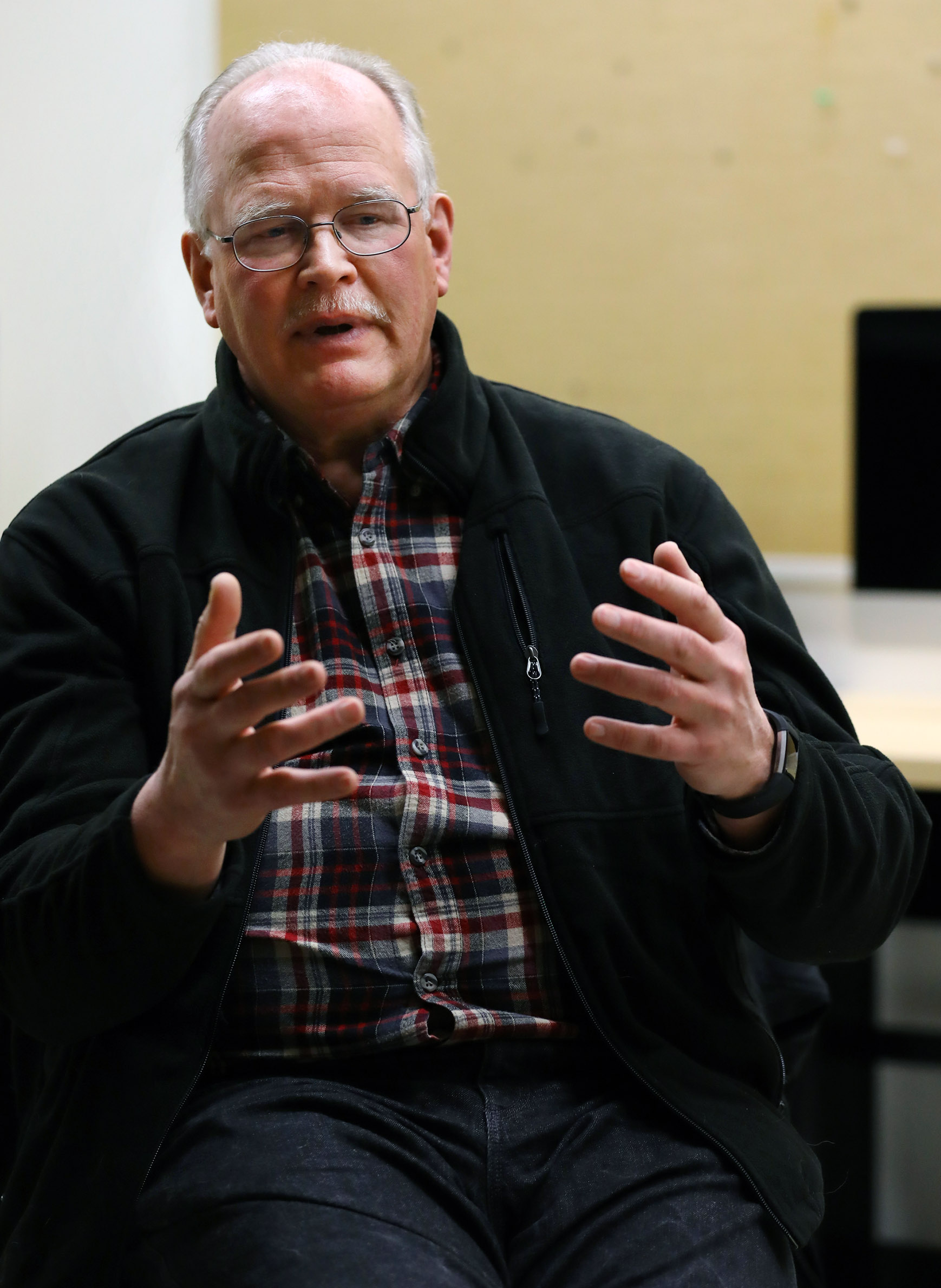
“‘Selling’ politics — it’s a lot different when you have to stand in front of people [who] question and talk to you,” said Schultz, a former majority leader.
Who has power? The public or politicians?
Kenneth Mayer said the question of whether citizens can influence the government is now more nuanced than ever.
He said citizens can influence government decisions in two ways: elections and “efforts to shape what happens in between elections,” such as expressions of public opinion, lobbying and communications with elected officials.
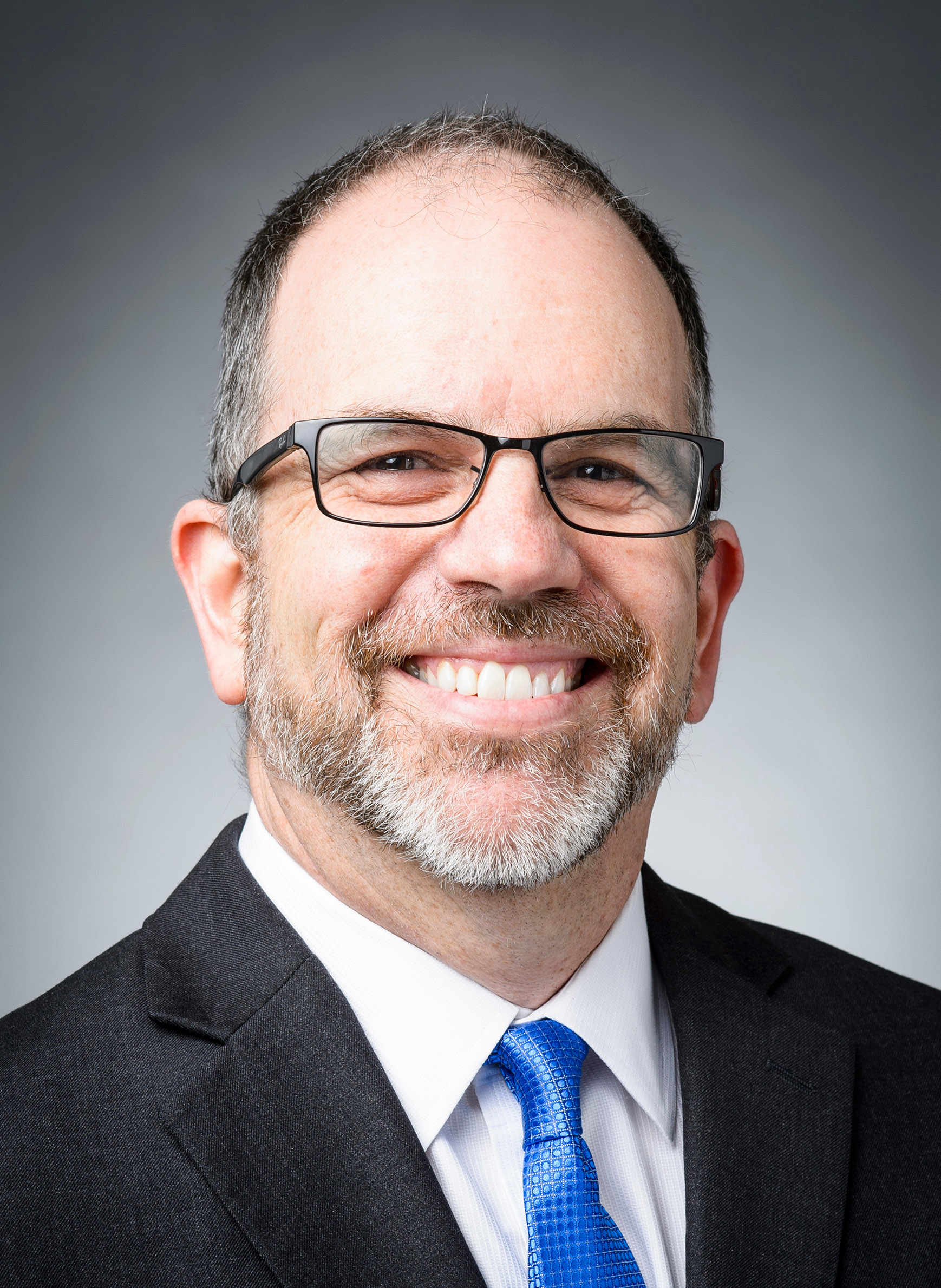
“It becomes complicated because there is not simply a single public, but lots of publics, with different groups, constituencies, and so on trying to influence and shape what the legislature does,” Mayer said.
Kathy Cramer, a UW-Madison professor of political science and author of a book about Walker’s rise in Wisconsin, noted that citizens do in theory have the potential to affect state legislation.
“But,” Cramer said, “in practice here as in other states, that is often not what happens. Public opinion often follows political leadership rather than the reverse. And recent scholarship in political science shows that policy decisions most closely correspond to the political leanings of the wealthiest people in the population, and not so much to other people.”
Mayer said that other states allow for more direct public input and responsiveness through initiatives and referenda in which citizens make laws directly. In all, 26 states have mechanisms that allow voters to propose laws through initiatives or overturn laws by popular referendum, according to the National Conference of State Legislatures.
Wisconsin does not have an initiative process. And any referendum asking for additional spending authority, to amend the state constitution or to gauge voter sentiment on a particular topic are initiated by governmental bodies — not citizens.
A bipartisan bill (2017 AJR 71) to give Wisconsin voters the power of initiative and referendum was introduced in 2017 but failed to get a hearing. The bill called for creation of “a petition process by which the people may propose and approve laws and constitutional amendments at an election and … a referendum process by which the people may reject an act of the legislature.”
Many citizens in other states are utilizing an initiative process to directly create legislation, most notably in the legalization of marijuana. Of the nine states that have now fully legalized marijuana, eight of them did so through an initiative process (Alaska, California, Colorado, Maine, Massachusetts, Nevada, Oregon and Washington), and only one (Vermont) through the legislative process.
Recall one option in Wisconsin
State residents unhappy with their representatives can recall those officials. The process begins with a petition, which must receive the signatures of 25 percent of the number of voters in the district who cast ballots in the last gubernatorial election. If the strict rules regarding signature collection are followed, a recall election is scheduled.
Eighteen other states allow for citizens to recall their elected officials. Just 10 states, including Wisconsin, include provisions for recalling any elected member of government. The others have specific stipulations, such as Illinois, where only the governor can be recalled.
Scott Walker — who benefited from Milwaukee County voters’ recall of Ament — faced his own recall in 2012, in the wake of sweeping changes to the rights of public employees with the passage of Act 10. Walker was easily reelected, but that year and the one before it saw a wave of recall elections of Republican and Democratic state senators as voters expressed their distaste with those who represented them.
The recalls paved the way for Democrats to briefly take control of the Senate in the second half of 2012, when the Legislature was not in session.
We, the Irrelevant
To combat the feeling that citizens were not being heard, Sheila Plotkin, a retired teacher of 28 years who lives in McFarland, Wisconsin, formed a citizens’ group, We, the Irrelevant, a play on the phrase from the preamble of the U.S. Constitution, which begins “We the people …”
Plotkin formed the group after the summer of 2015, when the Legislature voted in a surprise move to severely weaken the public records law by exempting key government records used in creating policy and laws. This deeply unpopular move later was removed from the budget by Gov. Scott Walker and the GOP legislative leaders.
The group uses public records requests to gauge the power of citizens to influence Wisconsin state government. Plotkin began by examining the 2015 plan to dissolve the Government Accountability Board, a nonpartisan government ethics and campaign watchdog, and return it to a version of its old form — separate elections and ethics commissions led by appointed partisans from both parties.
Plotkin also wanted to know whether citizens supported the bill to exempt politicians from John Doe investigations, such as the one that had probed coordination between Walker’s campaign and conservative groups. The investigation ultimately was shut down by the conservative-dominated Wisconsin Supreme Court.
And she looked into whether Wisconsin residents were the driving force behind lawmakers’ plan to raise, and in some cases, eliminate campaign contribution limits, allow candidates to coordinate with so-called issue ad groups and hide the names of the employers of contributors — a key transparency measure.
“During this process I began to ask myself, ‘Who’s asking for these changes? Are citizens asking for this? Are they hearing from constituents saying ‘Get rid of the GAB’?” Plotkin said. “I was trying to correlate my open record requests with bills that were currently showing up in the newspaper.”
Plotkin and later 10 or so volunteers, tallied emails, letters and phone logs of Republican lawmakers, who control the Legislature, to gauge whether public sentiment was for or against those controversial bills.
The group gathered results from the three bills — dismantling the GAB, exempting politicians from John Doe probes and rewriting campaign finance laws.
The disparities were massive: 6,215 comments against and 312 in favor of the three bills. Despite the overwhelming public opposition, all three measures passed.

The group also examined public sentiment surrounding bills to change water quality standards and other environmental protections, including 2015 Senate Bill 459, which limits DNR restrictions on permanent boat shelters, allows dredging of isolated artificial water bodies and development of certain wetlands of two acres or less.
According to We, the Irrelevant, 38 citizens voiced support while 1,120 were against SB 459. It, too, passed the Legislature.
Businesses win, citizens lose
Robert Rolley, a retired Wisconsin Department of Natural Resources wildlife research biologist, said he has seen regular citizens lose influence over natural resource decisions since Scott Walker took office.
“There is a long history in the DNR of listening to public input prior to making management decisions,” said Rolley, who worked at the agency for 25 years. “What has changed is which citizens the DNR Board and administration is interested in listening to.”
He added, “The leadership in the DNR is much more interested in facilitating businesses’ opportunity to expand. In the last eight years, it made it a lot easier for businesses to get the permits they want in a quick manner so they can make more jobs.”
The attitude of the current DNR administration is, “If we get a little bit more pollution, it’s a small price to pay,” Rolley said.
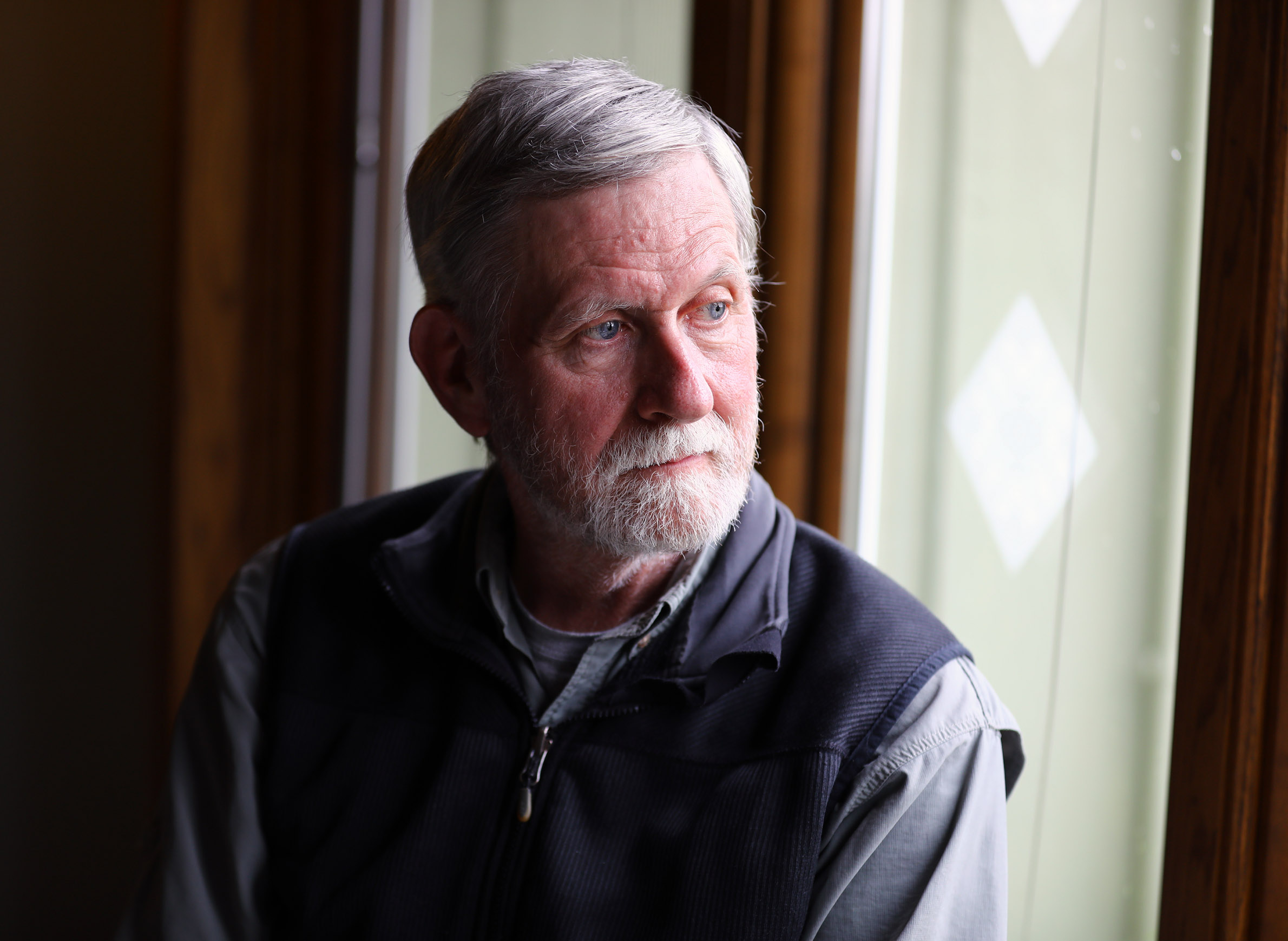
Even the Wisconsin Conservation Congress — a nonpartisan group set up by the Legislature in 1934 specifically to gather public opinion and advise the DNR on natural resource issues — appears to be losing its influence.
For example, a bill (2017 SB 68) introduced in early 2017 proposed allowing resumption of baiting and feeding of white-tailed deer in areas where chronic wasting disease had been detected. The disease, fatal to deer, has been found in or near 53 of the state’s 72 counties.
The Conservation Congress came out strongly against the bill.
“Passing this bill would disregard the thousands of volunteer hours citizens across this state have spent engaged in this CWD process: attending meetings, reviewing studies and scientific literature, talking to fellow citizens and participating in this grass roots effort,” Larry Bonde, chairman of the Wisconsin Conservation Congress, told lawmakers.
“These groups worked diligently to gather public input and get various perspectives on CWD issues … dismissing their hard work and input could be damaging for future efforts to engage the public.”
Ignoring that advice, the Legislature passed the bill in June 2017.
A year later, UW-Madison researchers discovered CWD-causing prions in the soil around deer feeding sites. Walker is now proposing additional regulations to limit the spread of the disease, which he acknowledged is a threat to the state’s hunting heritage.
Plotkin said she fears many people feel they no longer have influence on government.
“Indifference is a killer of democracy, and I’m hoping if Donald Trump has done nothing else, he has awakened those people who never thought voting mattered. If he’s made enough of them angry, I hope they vote.”
Wisconsin Center for Investigative Journalism reporter Madeline Heim contributed to this story.
This story was produced as part of an investigative reporting class in the University of Wisconsin-Madison School of Journalism and Mass Communication under the direction of Wisconsin Center for Investigative Journalism managing editor Dee J. Hall, the Center’s managing editor. The Center’s collaborations with journalism students are funded in part by the Ira and Ineva Reilly Baldwin Wisconsin Idea Endowment at UW-Madison.
These stories examine the state of Wisconsin’s democracy in an era of gerrymandering, secret campaign money, restrictive voting laws and legislative maneuvers that weaken the power of regular citizens to influence government. The series was reported by University of Wisconsin-Madison journalism students Cathleen Draper, Nicole Ki, Pawan Naidu, Cameron Smith, Teodor Teofilov and CV Vitolo-Haddad as part of an investigative reporting class led by Wisconsin Center for Investigative Journalism Managing Editor Dee J. Hall with assistance from Coburn Dukehart, the Center’s digital and multimedia director. More stories will be published in upcoming months. The Center’s coverage of democracy issues is supported by The Joyce Foundation.
The public is invited to help with this investigation of the state of democracy in Wisconsin. Have you been harmed by a lack of democracy? Send ideas for coverage to [email protected], or WCIJ, 5006 Vilas Hall, 821 University Ave., Madison, Wis., 53706. The best tips clearly describe the issue and include documentation or other evidence.
The nonprofit Center collaborates with Wisconsin Public Radio, Wisconsin Public Television, other news media and the UW-Madison School of Journalism and Mass Communication. All works created, published, posted or disseminated by the Center do not necessarily reflect the views or opinions of UW-Madison or any of its affiliates.
 Passport
Passport




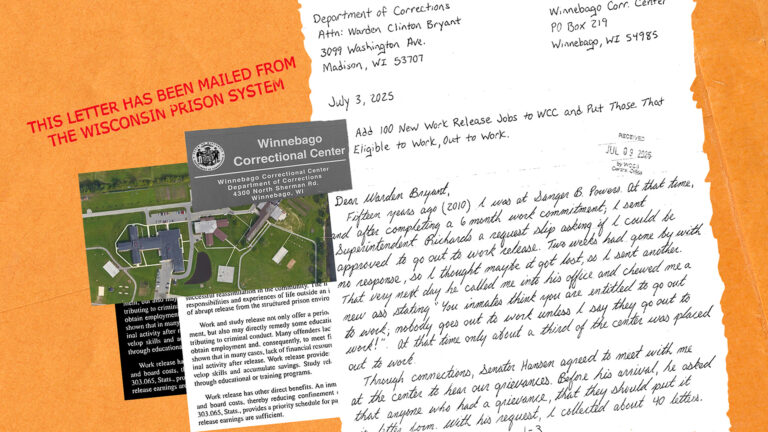
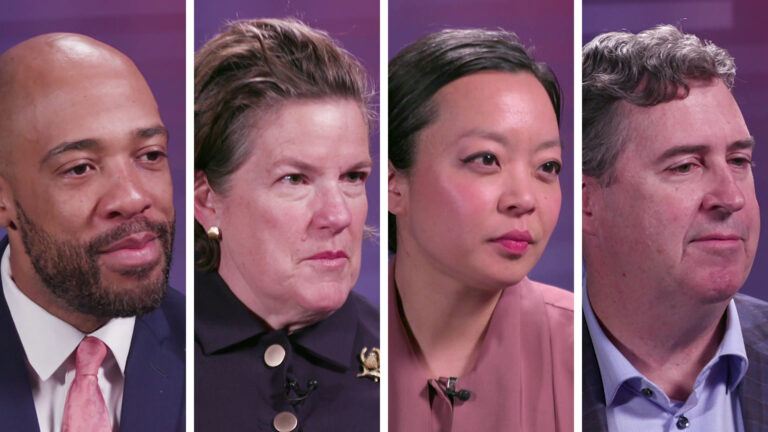
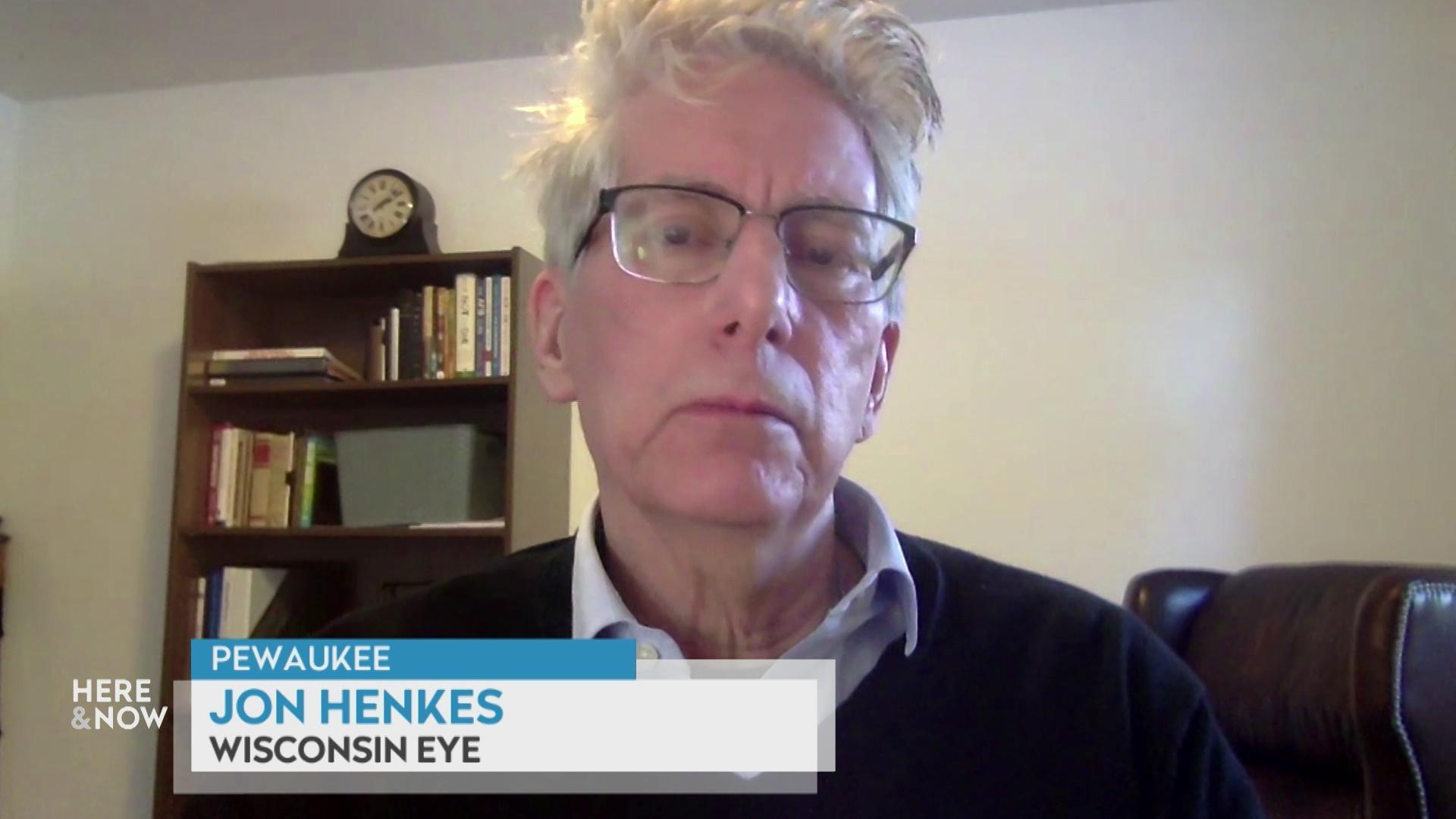




Follow Us